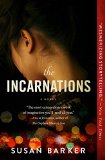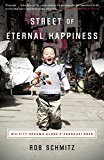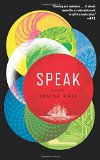Summary | Excerpt | Reading Guide | Reviews | Beyond the book | Read-Alikes | Genres & Themes | Author Bio

A Novel
by Susan BarkerWhy, in my time at BookBrowse, have I written reviews of four books set either in New Orleans or the bayous of Louisiana? What accounts for my fierce love of grits and bread pudding and jambalaya? Was I a New Orleanian in a past life, in exile in this life?
I'm only wondering about one past life. Try five. In The Incarnations, Wang Jun, a dispirited taxi driver in pre-2008 Olympics Beijing, is told that he has lived five lives. This startling news comes to him in a letter from a mysterious, unseen stranger, someone who also tells him that their lives – all of them – have intertwined. Through a clever use of alternating chapters that move between the present and each of the other four pasts, the reader learns about the many versions of Wang Jun: he was forced into becoming a eunuch after incest with his mute sister in the Tang Dynasty in 632 A.D. The stranger was his daughter from the act, a celebrated prostitute in one of Chang'an's brothels. He was also one of many slaves to the Mongols in a trek through the Gobi desert after the fall of the Jin Dynasty in 1213 (the stranger, a fellow slave); a new concubine in the palace of Emperor Jiajing, the Chinese equivalent of the tyrannical Roman emperor Caligula, during the Ming Dynasty in 1542 (the stranger was the head concubine); and was part of the stark, horrific barbarism of the Cultural Revolution in a radicalized girls' school in 1966 (the stranger was a girl who he had initially protected from schoolgirl taunts). In essence, Barker explores one character's complex being through multiple versions of his life.
All of the past lives are quite a contrast from the life Wang Jun currently lives as husband to Yida and father to Echo, and co-owner of a green-and-yellow cab with the decrepit-looking Baldy Zhang. Maybe, after all of his past-life adventures, his current life is simply a well-deserved break – even including the mental breakdown in college that caused his tyrannical politico father to put him in an institution, and even including the fact that he has discovered his true sexuality with his lover Zeng Yan.
A great deal of The Incarnations is taken up by sex in its many forms and positions and desires. On the surface, it all reads like Harold Robbins in China, but ultimately, it's not sex for sex's sake. Rather, Susan Barker explores it as a deeper connection between people. How they use it, what they gain by it, and whether it draws them closer together all become important questions. Barker also skillfully provides amusement through creative sexual euphemisms, especially in the Hummingbird Inn brothel during Wang Jun's first past life. They're poetic while being wry at the same time.
In fact, wry humor is crucial to experiencing The Incarnations, because this is bleak stuff. There's little genuine happiness to be found among its characters. And this is where Barker does her best work, refocusing the reader's attention in order to blunt the sharp impact of Wang Jun's harsh past lives. Her descriptions of the workaday nature of illicit massage parlors, for example, are actually funny. Barker's humor softens tough subjects over and over again.
Altogether, The Incarnations produces a strong magnetic pull toward reading more epic novels that have a supernatural or magical element. I might never know if I was once a New Orleanian, but Barker provides a dynamic reminder that in books, we can be any character we want to be, and know each of them intimately, even across lifetimes.
![]() This review was originally published in The BookBrowse Review in September 2015, and has been updated for the
May 2016 edition.
Click here to go to this issue.
This review was originally published in The BookBrowse Review in September 2015, and has been updated for the
May 2016 edition.
Click here to go to this issue.

If you liked The Incarnations, try these:

by Rob Schmitz
Published 2017
An unforgettable portrait of individuals who hope, struggle, and grow along a single street cutting through the heart of China's most exhilarating metropolis, from one of the most acclaimed broadcast journalists reporting on China today.

by Louisa Hall
Published 2016
A thoughtful, poignant novel that explores the creation of Artificial Intelligence - illuminating the very human need for communication, connection, and understanding.
Your guide toexceptional books
BookBrowse seeks out and recommends the best in contemporary fiction and nonfiction—books that not only engage and entertain but also deepen our understanding of ourselves and the world around us.